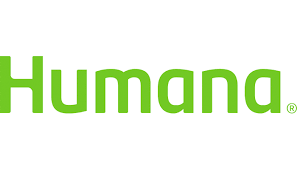Enrolling in a Humana Medicare Health Insurance plan typically involves the following steps:
- Eligibility: First, individuals must be eligible for Medicare, which generally includes people who are 65 or older, people under 65 with certain disabilities, and people with end-stage renal disease.
- Enrollment Period: Individuals can enroll in a Humana Medicare plan during the annual enrollment period from October 15th to December 7th. There may also be special enrollment periods available for certain circumstances such as a change in employment status or relocation.
- Plan selection: During the enrollment period, individuals can review and compare the available Humana Medicare plans, select the plan that best fits their healthcare needs and budget, and enroll in the chosen plan.
- Application submission: The application process typically involves filling out an enrollment form either online, by phone, or through a licensed insurance agent. The application will require personal information such as name, address, date of birth, and Medicare information.
- Confirmation and approval: Once the application is submitted, it will be reviewed for approval. Individuals will receive confirmation of their enrollment and the start date of their coverage.
It is important to note that individuals who already have a Humana Medicare plan can make changes to their plan during the annual enrollment period or during special enrollment periods. Additionally, individuals who are new to Medicare have a seven-month Initial Enrollment Period to enroll in a Humana Medicare plan, which begins three months before their 65th birthday and ends three months after their birthday month.

“Don’t Miss Out: A Guide to Understanding Enrollment Periods and Deadlines
There are several enrollment periods and deadlines associated with Humana Medicare Health Insurance plans, including:
Initial Enrollment Period (IEP): The IEP is a seven-month period that begins three months before an individual turns 65 and ends three months after their birthday month. During this period, individuals can enroll in a Humana Medicare plan for the first time.
Annual Enrollment Period (AEP): During this period, individuals can enroll in, switch, or drop a Humana Medicare plan.
Special Enrollment Period (SEP): An SEP is a period outside of the IEP or AEP during which individuals can enroll in a Humana Medicare plan due to certain life events, such as losing employer-sponsored coverage, moving to a new area, or becoming eligible for Medicaid.
Open Enrollment Period (OEP): During this period, individuals who are already enrolled in a Humana Medicare Advantage plan can switch to another Medicare Advantage plan or switch back to Original Medicare.
It is important to note that missing enrollment deadlines may result in penalties or gaps in coverage, so it is important to stay informed of enrollment periods and deadlines and to take action within the appropriate timeframe. Individuals can contact Humana or a licensed insurance agent for more information on enrollment periods and deadlines.

5 Essential Humana Medicare Health Insurance Resources Every Senior Should Know About
There are several resources available to help individuals manage their healthcare and make the most of their Humana Medicare Health Insurance coverage, including:
- Customer service: Humana customer service representatives can provide information and assistance with plan options, coverage, benefits, and claims. They can also help individuals find healthcare providers, check drug coverage, and answer any questions about their plan.
- Online tools: Humana’s online tools and resources include a member portal, mobile app, and online chat. These resources allow individuals to manage their healthcare from anywhere, track their claims and benefits, access health and wellness programs, and find healthcare providers.
- Health and wellness programs: Humana offers various health and wellness programs, including fitness programs, weight loss programs, and smoking cessation programs. These programs can help individuals improve their health and manage chronic conditions.
- Care management: Humana’s care management programs provide personalized support and guidance to individuals with chronic or complex conditions. These programs can help individuals manage their conditions, coordinate their care, and access community resources.
- Telehealth services: Humana offers telehealth services, which allow individuals to consult with healthcare providers remotely. This can be particularly helpful for individuals who live in rural areas, have mobility issues, or need to consult with a specialist.
By utilizing these resources, individuals can better manage their healthcare, stay informed about their coverage and benefits, and take advantage of programs and services that can help them improve their health and well-being.
